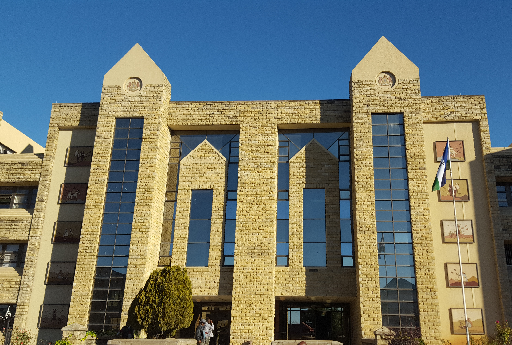Motsamai Mokotjo
In recent times, the African continent has witnessed a series of coups in West Africa, prompting a wave of jubilation among young people, particularly on social media. A thought-provoking article shared by a respected academic from the Vanguard Africa Foundation delves into the reasons behind this seemingly counterintuitive celebration.
The article highlights a perceived detachment between the continent’s elites and the aspirations of its youth, leading to a renewed interest in coup-related sentiments. This phenomenon taps into broader themes of generational discontent, socioeconomic challenges, and a desire for change that echo historical narratives of class struggle articulated by Karl Marx and Friedrich Engels in Manifesto of the Communist Party.
The Vanguard Africa Foundation’s article draws attention to a troubling discord between the established elites of Africa and the younger generation. While the continent’s youth grapple with high unemployment rates, limited access to quality education, and other socioeconomic ills, the prevailing political leadership appears out of touch with these realities.
This disconnect has bred a sense of frustration, prompting many young people to see coups as a potential means of overturning the status quo and ushering in a more responsive and accountable governance structure.
The notion of young people being characterised as a “security threat†in Agenda 2063, a continental development blueprint, raises pertinent questions about the perceived threat of youthful aspirations to the established order.
This characterisation is rooted in historical apprehensions, particularly in the wake of the Arab Spring uprisings that led to the toppling of leaders like Egypt’s Hosni Mubarak and Tunisia’s Zine El Abidene Ben Ali.
The fear of similar revolutionary fervour emerging in Africa serves as a backdrop to the celebrations surrounding recent coups, as the youth find an outlet for their unmet aspirations.
The sentiments of the African youth, yearning for change and justice, resonate with the ideas of Marx and Engels. The manifesto’s assertion that political power is an instrument of class oppression becomes a lens through which to view the coups and the broader socio-political landscape in Africa.
When the conditions for class antagonism are perceived to persist, and elites fail to address the plight of the masses, the youth may embrace the prospect of revolutionary change as a means to dismantle existing power structures.
The two argue: “When, in the course of development, class distinctions have disappeared, and all production has been concentrated in the hands of a vast association of the whole nation, the public power will lose its political character.
“Political power, properly so called, is merely the organised power of one class for oppressing another. If the proletariat during its contest with the bourgeoisie is compelled, by the force of circumstances, to organise itself as a class, if, by means of a revolution, it makes itself the ruling class, and, as such, sweeps away by force the old conditions of production, then it will, along with these conditions, have swept away the conditions for the existence of class antagonisms and of classes generally, and will thereby have abolished its own supremacy as a class.â€
Examining the case of Lesotho’s election of Ntsokoane Sam Matekane, a capitalist leader at odds with the common man’s particularly young people’s needs, reveals a complex interplay of leadership dynamics. Matekene’s Revolution for Prosperity (RFP), or Rich Folk Party, offers a contrasting vision to the socioeconomic struggles faced by the majority.
Marx and Engels’ concept of capital accumulation as a defining characteristic of bourgeois power helps shed light on this contrast, as the RFP’s priorities seem rooted in preserving existing economic hierarchies rather than addressing pressing societal issues.
The frustration of African youth, which finds resonance in both historical and contemporary contexts, centres around unfulfilled aspirations. High rates of youth unemployment, mental health challenges, substance abuse, and socioeconomic inequalities fuel the desire for transformative change.
The celebration of coups as a means of disrupting the prevailing power structures reflects an urgent need for leadership that is attuned to the needs and aspirations of the youth.
The recent spate of coups in West Africa, celebrated by young people on social media, highlights the complex interplay between generational aspirations, leadership dynamics, and socioeconomic struggles on the African continent.
The Vanguard Africa Foundation’s article underscores the detachment of elites from the plight of the youth, while Agenda 2063’s characterization of young people as a security threat reveals a deep-seated fear of revolutionary change.
Drawing from the ideas of Marx and Engels, the celebrations surrounding coups can be understood as an expression of youthful frustration with class-based oppression and unmet expectations. The case of Lesotho’s leadership dynamics and the RFP further illuminate the gap between elite priorities and the pressing needs of the majority. Ultimately, these coups serve as a poignant reminder that addressing socioeconomic challenges and bridging the gap between generations is crucial for fostering stability, inclusivity, and prosperity across the African continent.
The Prime Minister should take cognisance of the following from Marx and Engels: “National differences and antagonism between peoples are daily more and more vanishing, owing to the development of the bourgeoisie, to freedom of commerce, to the world market, to uniformity in the mode of production and in the conditions of life corresponding thereto. The supremacy of the proletariat will cause them to vanish still faster. United action, of the leading civilised countries at least, is one of the first conditions for the emancipation of the proletariat.â€

Your Trusted Source for News and Insights in Lesotho!
At Newsday Media, we are passionate about delivering accurate, timely, and engaging news and multimedia content to our diverse audience. Founded with the vision of revolutionizing the media landscape in Lesotho, we have grown into a leading hybrid media company that blends traditional journalism with innovative digital platforms.












